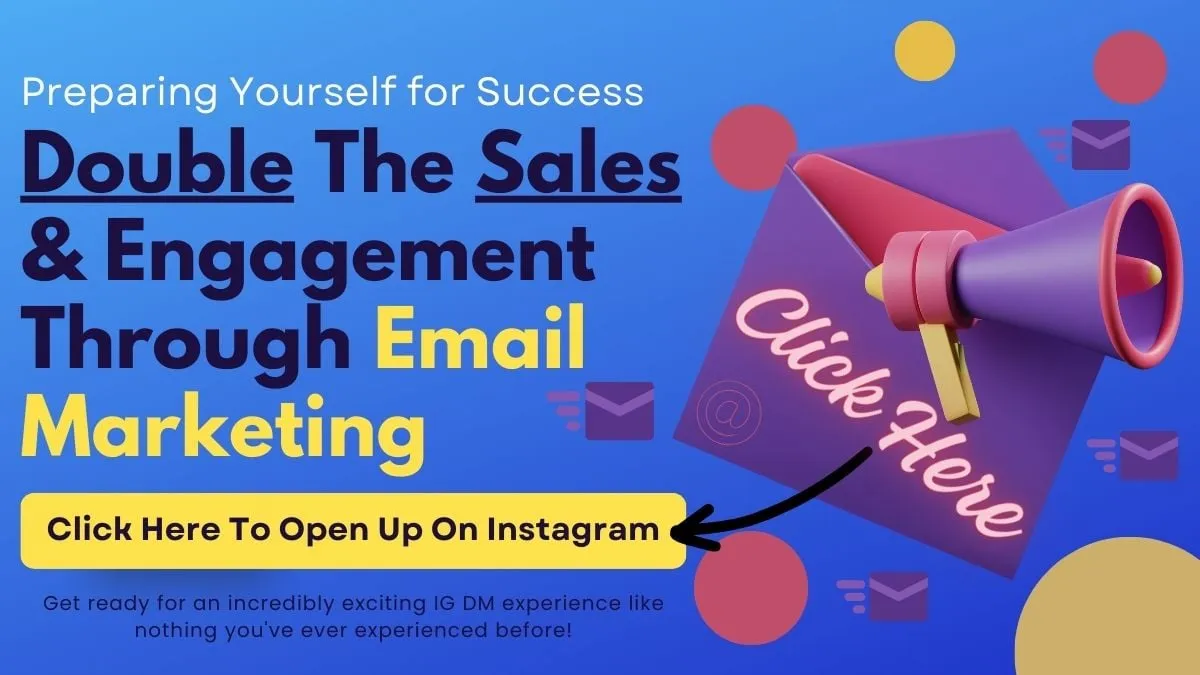Understanding Market Research: Strategies for Thriving

In the golden age of information, businesses are inundated with data at every turn. But how do you sift through this vast ocean to find the pearls of wisdom that drive success?
The answer lies in market research. It's not just about gathering data; it's about understanding the heartbeats, desires, and needs of your customers.
Through absolute market research, businesses can develop strategies that strongly resonate with customers, create products that bring joy, and provide services that truly transform.
What Is Market Research?

Market research is a systematic approach to gathering and interpreting market information, acting as a guiding compass for businesses amidst competition.
It connects businesses to their customers, helping them understand potential opportunities before launching products or entering new markets.
Through diverse tools like focus groups, online surveys, and in-depth studies, market research offers invaluable insights.
Its importance is akin to navigating without a map; without it, businesses risk getting overwhelmed by the immense ocean of competition.
Beyond mere data, market research uncovers stories of real people, their needs, and their desires, shaping business futures. It's not just about collecting data but also interpreting it, connecting patterns, and driving actionable insights.
Key Takeaways from Market Research

In the dynamic hallways of the business realm, market research stands out as a source of guidance and inspiration for clarity.
It's not just about numbers and charts; it's about understanding the soul of the market. Here are some eye-opening insights that market research offers:
Benefits for Businesses and Entrepreneurs
Market research is the unsung hero behind many successful ventures. It provides a systematic understanding of the market, helping businesses make informed decisions.
Whether you're introducing a new product or refining an existing one, market research ensures you're on the right track.
Impact on Product or Service Introduction
Ever wondered why some products become instant hits while others fade into obscurity? The answer often lies in market research.
By gauging the pulse of the market, businesses can tailor their offerings to meet customer needs, ensuring a successful launch.
Primary vs. Secondary Market Research

While both primary and secondary research methods offer invaluable insights, it's essential to understand when and how to use them effectively.
Primary Market Research
It's similar to immersing oneself in the depths of the ocean in search of precious pearls. It's a direct approach where businesses interact with their potential customers to gather fresh insights. This method is particularly beneficial when:
- Launching a new product or service and gauging its potential success.
- Understanding the specific challenges or pain points of your target audience.
- Gathering feedback on existing products or services to refine them further.
For instance, imagine you're introducing an innovative kitchen gadget.
By conducting face-to-face interviews or online surveys, you can understand what potential users expect from such a product, their willingness to pay, and even features they'd love to see.
Secondary Market Research
On the other hand, it's like exploring a well-stocked library. You're not generating new data; instead, you're leveraging existing information to draw conclusions. This method is especially useful when:
- Looking for broad industry trends or market overviews.
- Analyzing competitors and understanding their strategies.
- Identifying potential market segments or demographics.
Consider the vast realm of e-commerce. By delving into industry reports or academic papers, businesses can understand emerging trends, such as the rise of sustainable products or the increasing importance of mobile shopping.
Both primary and secondary methods of market research contribute different elements to the overall tapestry of knowledge in this field.
While primary research offers a direct connection to the audience, secondary research provides a bird's-eye view of the market.
By weaving these threads together, businesses can craft a comprehensive understanding, ensuring they're not just participants in the market but leaders shaping its future.
Types of Market Research

Within the expansive realm of market research, there are diverse methodologies that cater to specific needs, each providing exceptional and distinctive insights.
Let's delve into some of the most prominent types:
Face-to-Face Interviews
This traditional method remains one of the most effective ways to gather in-depth insights.
By engaging directly with participants, businesses can gauge reactions, emotions, and body language, offering a holistic understanding of their perspectives.
Focus Groups
A dynamic setting where a group of individuals discusses a particular topic. Focus groups can reveal shared challenges, emerging trends, and collective opinions under the direction of a moderator.
It's like eavesdropping on a conversation your target audience is having about your product or service.
Phone Research
While the digital age has transformed many research methodologies, phone interviews remain relevant. They offer a personal touch, allowing researchers to ask follow-up questions and delve deeper into specific areas of interest.
Survey Research
Surveys are versatile tools that can be tailored to various needs. Whether online or offline, they gather quantitative data, helping businesses understand patterns, preferences, and pain points.
With the rise of platforms like Typeform and SurveyMonkey, creating and disseminating surveys has never been easier.
Online Market Research
The digital revolution has brought about a multitude of online research tools. From social media polls to online forums, businesses can tap into a global audience, gathering diverse insights at the click of a button.
How to Conduct Market Research

Market research serves as a guiding lighthouse, leading ventures towards success in the vast expanse of the business world.
But how does one embark on this enlightening journey? Here's a step-by-step guide to help you navigate the intricate waters of market research:
Define Your Objectives
Before diving into the data, it's crucial to have a clear understanding of what you're looking to achieve.
- Are you launching a new product?
- Exploring a new market segment?
- How about evaluating customer satisfaction instead?
Your objectives will shape the direction of your research.
Choose Your Research Method
Depending on your objectives, you'll either opt for primary research, where you gather firsthand data, or secondary research, leveraging existing information. Each has its merits, and often, a combination of both yields the best results.
Design Your Research
This involves crafting questionnaires, deciding on sample sizes, and choosing the right tools. Remember, the quality of your data is only as good as the design of your research.
Gather Data
With your research designed, it's time to collect data. This could involve face-to-face interviews, online surveys, or delving into industry reports. Ensure your methods align with your objectives for accurate results.
Analyze and Interpret
Once you have your data, it's time to make sense of it. Look for patterns, insights, and anomalies. Tools and software can assist, but a keen human eye can spot nuances that machines might miss.
Implement Findings:
Research is only as valuable as its application. Use the insights you've gained to refine your strategies, innovate your products, or even pivot your business model.
Review and Refine
The market is ever-evolving. Regularly review and update your research methodologies to stay relevant and informed.
Benefits of Market Research

In the dynamic realm of business, where change is the only constant, market research stands as a lighthouse guiding ventures towards success. It's not just a tool; it's a compass, a mentor, and a mirror reflecting the desires of the market.
Let's delve into the transformative benefits that market research bestows upon businesses:
Informed Business Decisions
In the world of business, every decision holds significant importance. Market research equips entrepreneurs with data-driven insights, ensuring that every step taken is grounded in evidence and understanding.
It's the difference between shooting in the dark and aiming with precision.
Competitive Advantage
In the vast sea of competition, how does one stand out? Market research provides a deep understanding of industry trends, competitor strategies, and customer preferences.
Armed with this knowledge, businesses can carve a unique niche, setting themselves apart from the crowd.
Brand Loyalty and Customer Satisfaction
At the heart of every successful business is a loyal customer base. Market research helps companies understand their audience's needs, preferences, and pain points.
By addressing these, businesses not only retain customers but also turn them into brand ambassadors.
Risk Mitigation
The business world is fraught with uncertainties. Whether it's launching a new product or entering a new market, risks abound. Market research acts as a safety net, identifying potential pitfalls and offering solutions to navigate them.
Uncovering New Opportunities
Often, opportunities lie hidden, waiting to be discovered. Market research acts as a treasure map, highlighting areas of potential growth, untapped markets, and emerging trends. It's the key to unlocking doors that might otherwise remain closed.
Enhanced Communication
Understanding one's audience is the first step to effective communication. Market research offers insights into customer behavior, preferences, and motivations.
With this knowledge, businesses can tailor their messaging to ensure it resonates and engages.
Challenges in Market Research

In the realm of market research, the journey to uncovering profound insights is not always smooth. Like any expedition, it comes with its own set of challenges.
However, understanding these challenges is the first step towards overcoming them and harnessing the true power of market research.
Data Overload
In today's digital age, there's no dearth of data. But sifting through this avalanche of information to find relevant insights can be daunting. It's essential to have a clear objective in mind and use advanced tools and techniques to filter out the noise.
Changing Market Dynamics
The market is a living entity, constantly evolving and adapting. What's relevant today might become obsolete tomorrow. Keeping up with these rapid changes requires agility and a keen eye on emerging trends.
Costly Endeavors
Conducting extensive market research, especially primary research, can be a costly affair. Balancing budgets while ensuring comprehensive research is a challenge many businesses face.
Time Constraints
Time is crucial in the business world. While market research can provide invaluable insights, it also requires time. Striking a balance between thorough research and timely decision-making is important.
Bias and Subjectivity
Human biases can creep into research, especially during data collection and interpretation. Ensuring objectivity and minimizing biases is pivotal for accurate results.
Adapting to Technological Advances
The tools and techniques of market research are continually evolving, thanks to technological advancements. Staying updated and adapting to these new methods is both a challenge and an opportunity.
Future of Market Research

As we stand on the precipice of a new era, the future of market research beckons with promise and potential.
The digital revolution, coupled with rapid technological advancements, is reshaping the landscape of market research, offering unprecedented opportunities and challenges.
Impact of Technology and Digital Transformation
The digital age has democratized information, making it accessible to all. Advanced tools, from artificial intelligence to big data analytics, are empowering businesses to delve deeper into consumer behavior.
Real-time data collection, predictive analytics, and machine learning are revolutionizing the way we understand and interact with our target audience.
Emerging Trends and Predictions
The rise of voice search, augmented reality, and virtual reality is set to redefine market research methodologies.
As consumers increasingly turn to voice assistants and immersive experiences, businesses must adapt their research techniques to stay ahead of the curve.
Additionally, the emphasis on privacy and data protection will shape the ethical boundaries of market research.
Conclusion: Embracing the Power of Market Research

In conclusion, understanding market research is pivotal for businesses aiming to thrive in today's competitive landscape.
From the foundational distinction between primary and secondary research to the transformative potential of emerging technologies like AI, VR, and AR, market research offers invaluable insights that can illuminate the path to success.
The future promises even more sophisticated tools and methodologies, further emphasizing the importance of staying informed and adaptable.
For businesses, investing in market research isn't just a strategic move—it's a commitment to understanding your audience, anticipating market shifts, and crafting solutions that resonate.
Embracing market research means embracing a future of informed decisions, sustainable growth, and unparalleled success.




